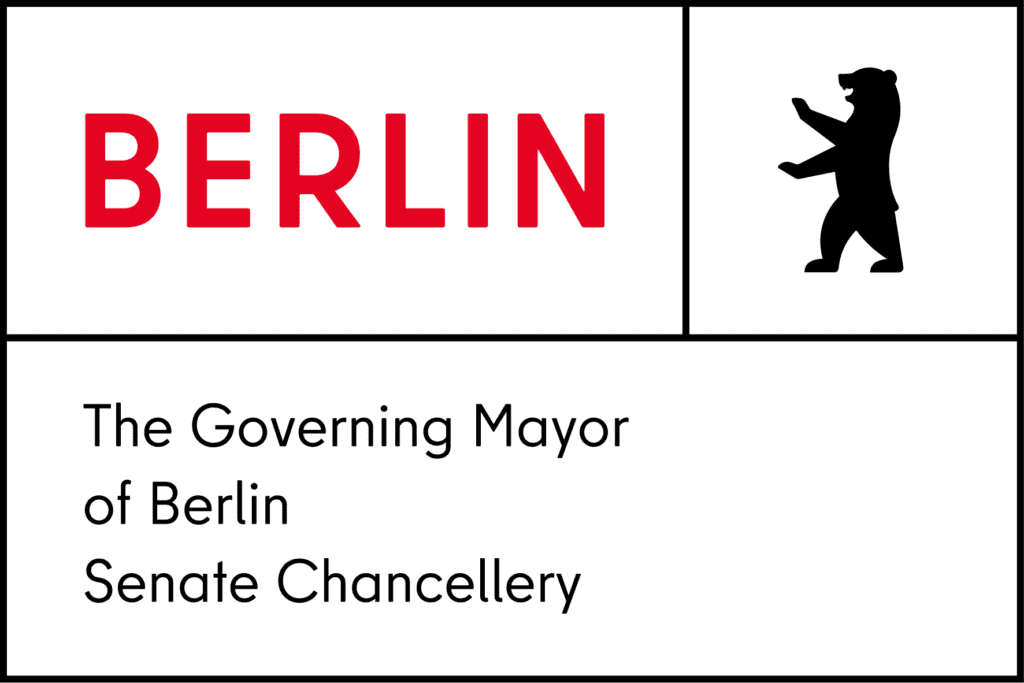Initial Situation
At the end of 2022, the strategy “Gemeinsam Digital: Berlin” (GD:B) was adopted by the Berlin Senate. During the nearly two-year strategy process, we were able to support the Senate Chancellery within the framework of the “Model Projects Smart Cities” (MPSC) program in carrying out an extensive participation process. Together with other stakeholders, we also formulated the strategy.
The focus was on participation, people, and values. The strategy Gemeinsam Digital: Berlin was therefore developed in dialogue with Berlin’s diverse urban society and is to be implemented together with them – shifting away from a purely technological focus towards co-creation and inclusion. This is the only way Berlin can become a sustainable, common good-oriented, resilient, and cooperative Smart City.
The “Model Projects Smart Cities” program is funded by the Federal Ministry for Housing, Urban Development and Building (BMWSB) and the KfW.
Project Goal
CityLAB Berlin supports the Berlin Senate Chancellery in the implementation of the “Gemeinsam Digital: Berlin” strategy by providing methodological and technical expertise, as well as community building among the implementation teams.
Approach
As part of the GD:B implementation support, we design workshops and provide methods to support the planning of strategy measures throughout various implementation phases. Our experts in service design, UX/UI design, and prototyping also work on specific aspects of implementation. We provide methods and guides in the CityLAB knowledge repository. All methodological knowledge is summarized in the GD:B Handbook and made available for independent use, even beyond the project context.
We are also working on strengthening the GD:B community so that implementation teams can support each other. Many challenges in developing digital technologies and smart city measures are similar and offer opportunities for mutual learning. In regular community meetings, we bring together GD:B strategy implementation teams for structured exchanges. Together with the Senate Chancellery and Berlin Partner, we organize the annual GD:B Conference – one of the key events for Berlin’s smart city community.
Gemeinsam Digital: Berlin is a learning strategy. Insights from the implementation process feed into the evaluation and further development of the strategy. Based on the findings from implementation support, community meetings, and the annual conference, we jointly produce an annual report on learning experiences from strategy implementation together with Politics for Tomorrow.
Project Timeline
- 2021–2022: Participation process for the Smart City Strategy
- 2022: Adoption of the Gemeinsam Digital: Berlin strategy by the Senate
- 2021–2026: Implementation phase of Berlin’s MPSC projects
- 2023: Development of the workshop concept for implementation support
- 2024: Creation of guides within the scope of implementation support; conceptual work on impact measurement for smart city projects
- 2025: First final workshops for GD:B measures
In 2024, the second annual conference of Gemeinsam Digital: Berlin took place. In cooperation with Politics for Tomorrow and the Senate Chancellery Berlin, we focused on the topic of impact and impact measurement.
Contact
- Niklas Kossow – Team Lead Smart City & Administrative Innovation
- Anja Lüttman – Smart City Designer
- Markus Sperl – Project Development & Project Management
